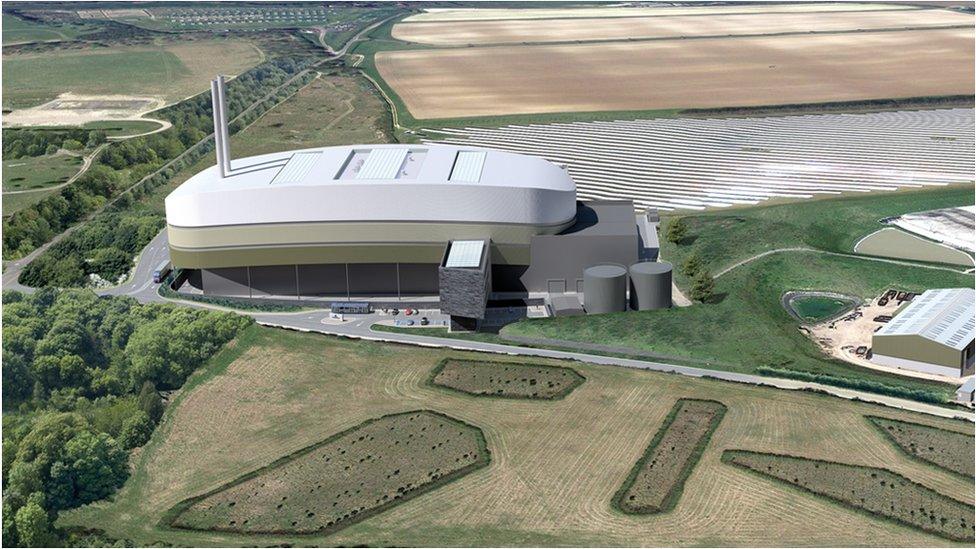Veolia's Alton incinerator plan refused by Hampshire County Council
- Published
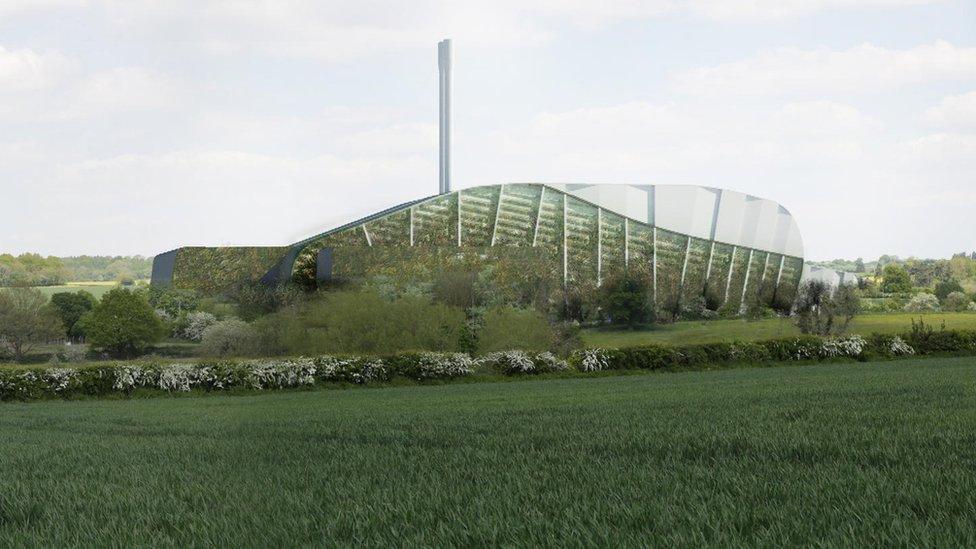
The plans included two 80m (260ft) chimneys
Controversial plans for a large incinerator branded a "huge monstrosity" have been rejected.
The proposals for an energy recovery facility in the Wey Valley off the A31, near Alton, Hampshire, were put forward by Veolia UK.
The company said the plant was needed and would avoid waste being disposed of in landfill sites.
But thousands of people had objected to the scheme saying it would have "devastating" consequences.
After a six-hour long debate, Hampshire County Council's councillors decided to reject the proposals, with three councillors voting in favour and 12 against.
The plant was expected to process 330,000 tonnes of waste a year and be capable of generating 30 MW of energy, enough to power 75,000 homes.
But several councillors and campaigners raised concerns over the proposed location and the impact of the development on the environment.
'Huge monstrosity'
The proposals were for a 40m-high building with two 80m (260ft) chimneys.
Christopher Napier, from countryside charity CPRE Hampshire, said it was the "wrong development in the wrong place".
He told councillors the visual impact would be "unacceptable" and views from and to the South Downs National Park would be "seriously damaged".
William Butler, from West End Flower Farm, described the facility as a "huge monstrosity" and warned of a "devastating" impact on local businesses and tourism.
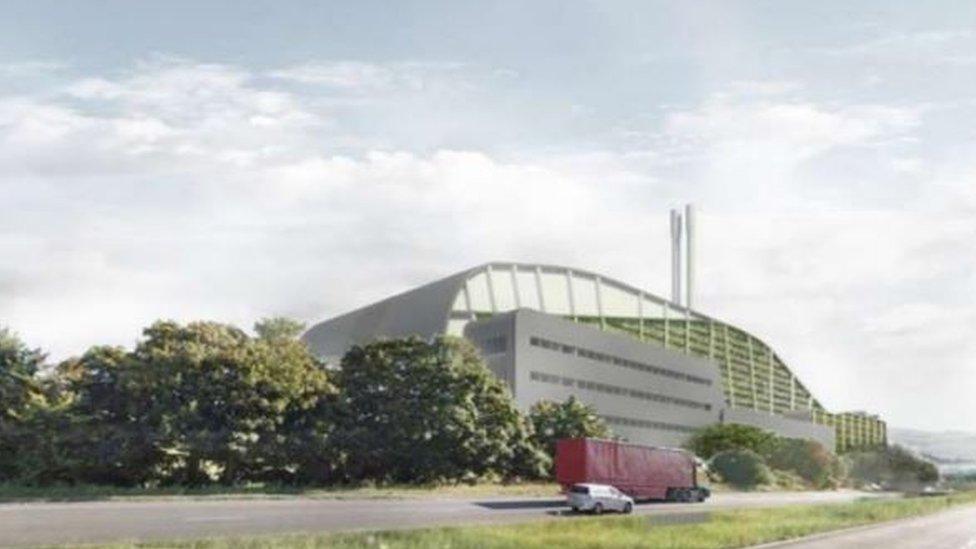
Thousands of people objected to the plans
Veolia representatives told councillors that such a facility was "required in Hampshire".
Simon McKee from the company said the plant was safe, it would not cause traffic congestion, it would prevent waste from going to landfill, and would have "a limited visual impact".
Planning officers at the council had recommended the plans for approval.
Laura McCulloch, the authority's strategic manager for planning, said it was satisfied the concerns over climate change were "satisfactorily" addressed.
Talking about the visual impact of the facility she said: "This is a big site, energy recovery facilities generally cannot be hidden, they are significant pieces of infrastructure and so they are going to have a visual impact."
But she said that the development offered an opportunity to divert waste from landfill sites.
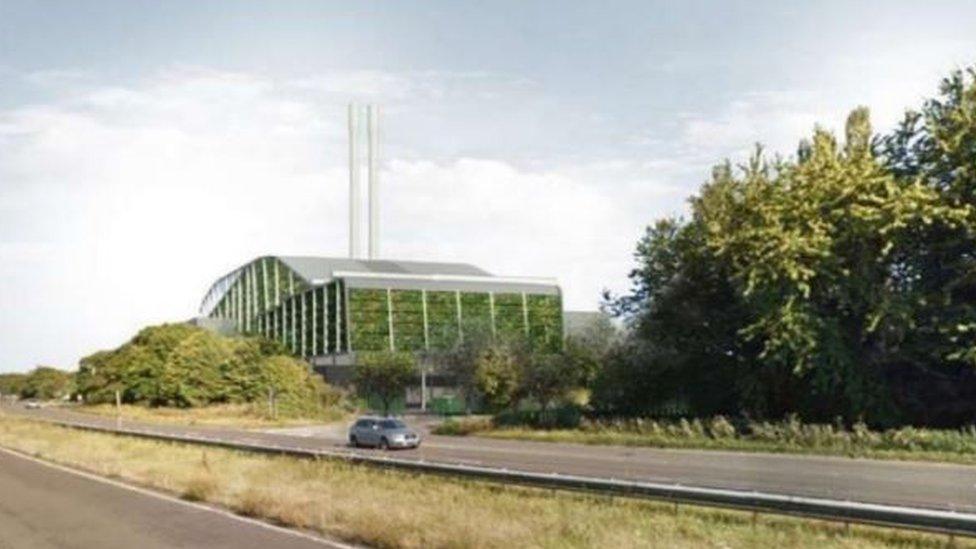
Planning officers at the council had recommended the plans for approval

Follow BBC South on Facebook, external, Twitter, external, or Instagram, external. Send your story ideas to south.newsonline@bbc.co.uk, external.
Related topics
- Published19 November 2021

- Published3 June 2020
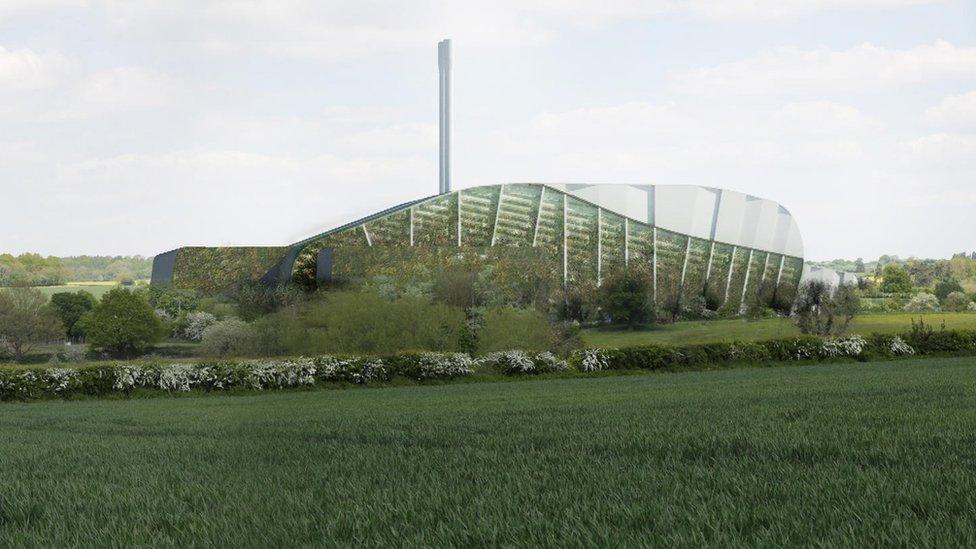
- Published20 February 2020
